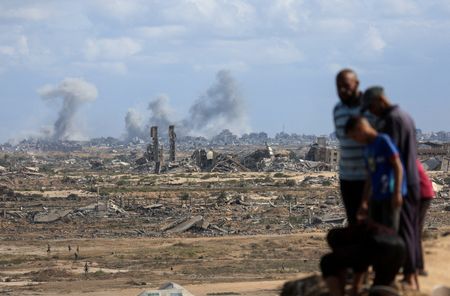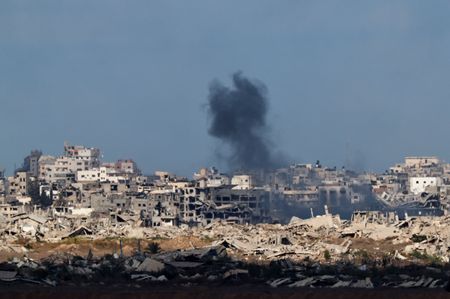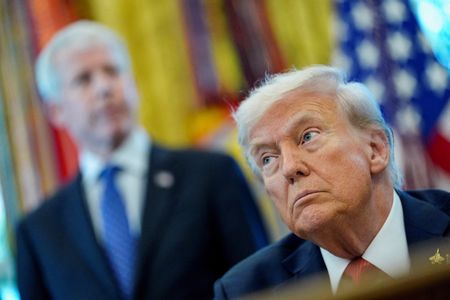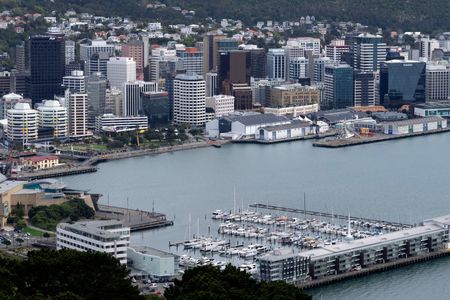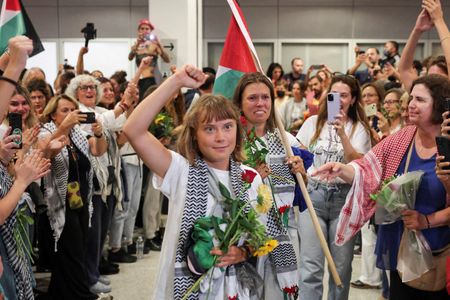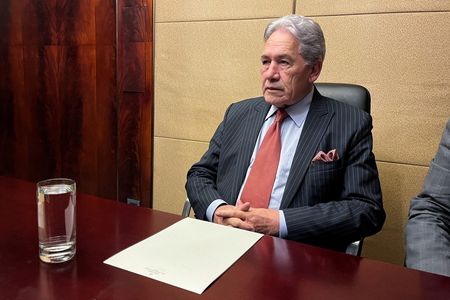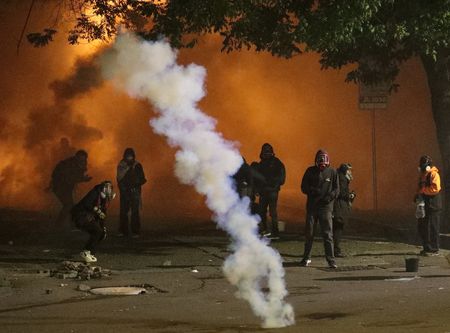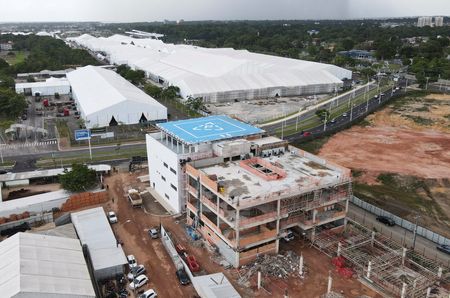By Nidal al-Mughrabi and Andrew Mills
SHARM EL-SHEIKH, Egypt (Reuters) -Delegations from Israel and Hamas held their first day of indirect negotiations in Egypt on Monday on U.S. President Donald Trump’s plan to halt the war in Gaza, wrestling with contentious issues such as demands that Israel withdraw and Hamas disarm.
Israel and Hamas have both endorsed the overall principles behind Trump’s plan, under which fighting would cease, hostages go free and aid pour into Gaza.
The plan also has the backing of Arab and Western states. Trump has called for negotiations to take place swiftly towards a final deal, in what Washington hails as the closest the sides have yet come to ending the two-year-old conflict.
Trump, who has cast himself as the only world leader capable of achieving peace in Gaza, has invested significant political capital in efforts to end the war that has killed tens of thousands and left U.S. ally Israel increasingly isolated on the world stage.
‘A REALLY GOOD CHANCE’
“I really think we’re going to have a deal,” Trump told reporters on Monday at the White House as the delegations met in Egypt. “We have a really good chance of making a deal, and it’ll be a lasting deal.”
But both sides are seeking clarifications of crucial details, including those that have derailed previous attempts to end the war and could defy any quick resolution.
Trump has pushed Israel to suspend its bombing of Gaza for the talks. Gaza residents said Israel had scaled back its offensive substantially, although not halted it altogether.
Gaza health authorities reported 19 people killed by Israeli strikes in the past 24 hours, around a third of the typical daily toll in recent weeks, when Israel has been mounting one of its biggest offensives of the war in Gaza City.
TALKS TO RESUME TUESDAY
The talks began at the Red Sea resort of Sharm El Sheikh with delegations from Egypt, the United States and Qatar present as intermediaries.
A Palestinian official close to the negotiations said the first session ended late Monday evening and more talks were due to take place on Tuesday.
Hamas outlined its stance on the release of hostages and the scale and timeline of Israel’s withdrawal from Gaza, the official said. The Islamist group also voiced concerns about whether Israel would commit to a permanent ceasefire and a comprehensive pullout, the official said.
Even as the talks concluded for the day, sounds of explosions from airstrikes and demolition of houses could be heard in Gaza City, signifying that Israel had not ceased its bombardment.
The talks commenced on the eve of the second anniversary of the Hamas attack on October 7, 2023, on Israel that triggered the war. Fighters killed 1,200 people and took 251 hostages, the deadliest day for Jews since the Holocaust.
Israel’s retaliatory military campaign has killed more than 67,000 Palestinians and left the majority of 2.2 million Gazans homeless and hungry in an enclave destroyed by relentless bombardment.
A senior Israeli security source said the talks initially would focus only on the release of hostages and give Hamas a few days to complete that phase.
Israel will not compromise on withdrawing troops only to the so-called yellow line in Gaza — a boundary for an initial Israeli pullback under the Trump plan, the source said. It would create a strategic buffer zone, and further withdrawal would depend on Hamas meeting set conditions.
WARINESS ABOUT PROSPECTS OF BREAKTHROUGH
With Israeli forces blasting their way through Gaza City and flattening neighbourhoods as they advance, Gaza residents called a ceasefire their last hope.
“If there is a deal, then we survive. If there isn’t, it is like we have been sentenced to death,” said Gharam Mohammad, 20, displaced along with her family in central Gaza.
Inside Israel there is clamour for an end to the war to bring home hostages, although right-wing members of Prime Minister Benjamin Netanyahu’s cabinet oppose any halt to fighting.
Though Trump says he wants a deal quickly, an official briefed on the negotiations, speaking on condition of anonymity, said he expected the round of talks starting on Monday would require at least a few days.
An official involved in ceasefire planning and a Palestinian source said Trump’s 72-hour deadline for the hostages’ return could be unachievable for dead hostages. Their remains may need to be located and recovered from scattered sites.
The Israeli delegation includes officials from spy agencies Mossad and Shin Bet, Netanyahu’s foreign policy adviser Ophir Falk and hostages coordinator Gal Hirsch. Israel’s chief negotiator, Strategic Affairs Minister Ron Dermer, was expected to join later this week, pending developments in the negotiations, according to three Israeli officials.
The Hamas delegation is led by the group’s exiled Gaza leader, Khalil Al-Hayya, who survived an Israeli airstrike that killed his son in Doha, the Qatari capital, a month ago.
The U.S. has sent special envoy Steve Witkoff and Jared Kushner, the president’s son-in-law who has strong ties to the Middle East, the White House said.
The parties “are going over the lists of both the Israeli hostages and also the political prisoners who will be released,” White House press secretary Karoline Leavitt said on Monday.
A thorny issue is likely to be the Israeli demand, echoed in Trump’s plan, that Hamas disarm, a Hamas source told Reuters. The group has insisted it will not disarm unless Israel ends its occupation and a Palestinian state is created.
In a statement commemorating the October 7 anniversary, United Nations Secretary-General Antonio Guterres said Trump’s plan “presents an opportunity that must be seized to bring this tragic conflict to an end.”
(Reporting by Ahmed Fahmy in Sharm el-Sheikh, Nidal al-Mughrabi in Cairo, Andrew Mills in Dubai; Additional reporting by Ludwig Burger and Ayhan Uyanik in Frankfurt, Ahmed Elimam and Tala Ramadan in Dubai, Michelle Nichols in New York and Steve Holland in WashingtonWriting by Michael Georgy and James OliphantEditing by Mark Heinrich, Peter Graff. Ros Russell and Cynthia Osterman)

